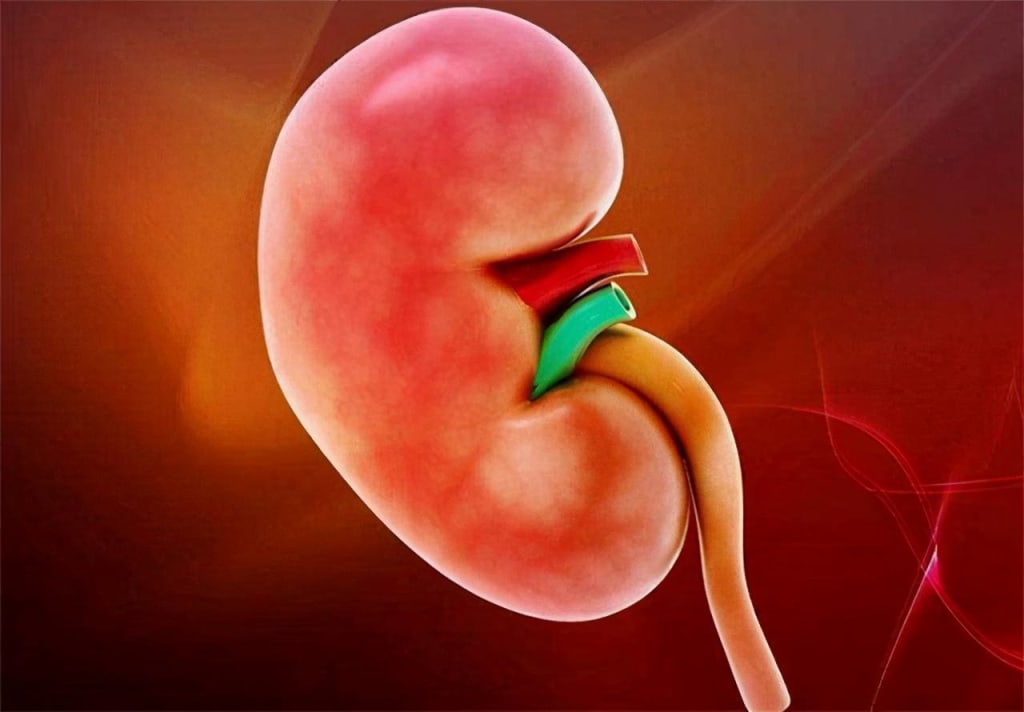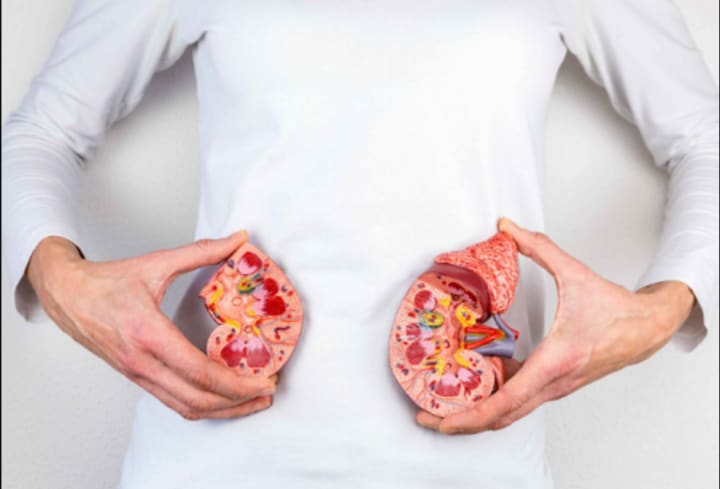Nourishing the kidney is not tonifying the kidney! Please keep this scientific recipe for nourishing the kidney
Nourish the kidney scientifically

The kidney is the filter of the human blood circulation
The kidney is an organ that mainly regulates water and salt metabolism, excretion of metabolites, and takes into account part of the endocrine function. The kidney is made up of thousands of small filters, and blood enters the kidney through the arteries. The blood is purified through the filter, and the purified blood retains beneficial substances to participate in the blood circulation.
Kidney disease not only affects middle-aged and elderly people
In the past three years, the incidence of kidney disease has been on the rise and has become younger, and the treatment of kidney disease has a long course of treatment and it is difficult to heal. Normal people should ensure that the urine output is more than 1,000 milliliters a day, in order to discharge the metabolic waste generated by the body and protect the kidneys.

Common manifestations of chronic kidney disease: calf and facial edema, oliguria, backache, waist drowsiness, lack of energy, and easy fatigue.
What is the proteinuria of kidney disease?
Proteinuria refers to the appearance of various components of protein in human blood in urine, and the qualitative examination of urine protein is positive. Proteinuria is one of the common clinical features of kidney disease. If there is a lot of foam in the urine, it is likely that there is a large amount of protein in the urine. Urine examination should be done to determine whether there is proteinuria.
Chronic kidney disease includes: glomerular disease, renal tubular disease, tubulointerstitial disease, vascular disease-related kidney damage and so on.
Abnormal protein index in patients with nephropathy: elevated urine microalbumin. Protein metabolites in the body need to be excreted by the kidneys, and excessive intake will inevitably lead to an increase in metabolites and increase the burden on the kidneys.

Proteinuria should be strictly controlled. Protein diet should be strictly controlled in daily life. Foods rich in protein include animal foods including poultry, pigs, beef and mutton, aquatic products, eggs, and dairy products. Plant foods include wheat flour, buckwheat, beans, nuts, and soybeans.
Vegetables, fruits, and starchy foods contain less protein.
An egg contains 8 grams of protein, a 250 ml bag of milk contains 8 grams of protein, and 50 grams of lean meat contains 8-10 grams of protein. Ingest one egg and half a catty of milk a day.
Ingested protein content of various foods:
100 grams of tofu contains 7.5 grams of protein;
25 grams of pork liver contains 5g of protein;

200-250 grams of staple food contains about 16-20 grams of protein;
200ml of soy milk contains 5-8 grams of protein;
An egg or 50 grams of lean meat contains 8-10 grams of protein.
Low-protein diet recipes for one day
Breakfast: egg pancakes (an egg, 50 grams of starch, 50 grams of side dishes, and appropriate amount of oil and salt), spinach vermicelli soup (75 grams of spinach, 15 grams of vermicelli).
Lunch: Chicken balls and winter melon (50 grams of chicken, 150 grams of winter melon), vinegar shredded eggplant (150 grams of eggplant), 240 grams of rice.
Dinner: steamed fish (80 grams of fish), braised small radish (150 grams of radish), vegetarian pancakes (100 grams of cabbage, 90 grams of pancakes).
The importance of diet
The onset of kidney disease is closely related to unreasonable eating habits, so dietary regulation is a very important link. Every kidney patient is his own best doctor, and his daily diet is the most convenient care. Diet therapy is directly related to the curative effect and prognosis of kidney disease. Therefore, it is necessary to cooperate with diet therapy while using drugs rationally.

What kidney diseases can be caused by improper diet?
1. Hyperuric acid nephropathy caused by overeating and hyperuricemia;
2. Salty foods and high-protein diets can cause water retention and cause kidney disease. Try to buy as little preservatives in supermarkets as possible.
Nutritional problems caused by kidney disease
Kidney diseases often cause malnutrition, metabolic disorders of sugar, protein, fat, electrolytes and vitamins in the body, which affect the recovery of renal function, the occurrence of complications and the prognosis. According to the results of modern pharmacological research, astragalus, yam, lotus seed porridge or soup can be often used as medicated food to reduce proteinuria's damage to kidney disease and protect the kidneys.






Comments
There are no comments for this story
Be the first to respond and start the conversation.